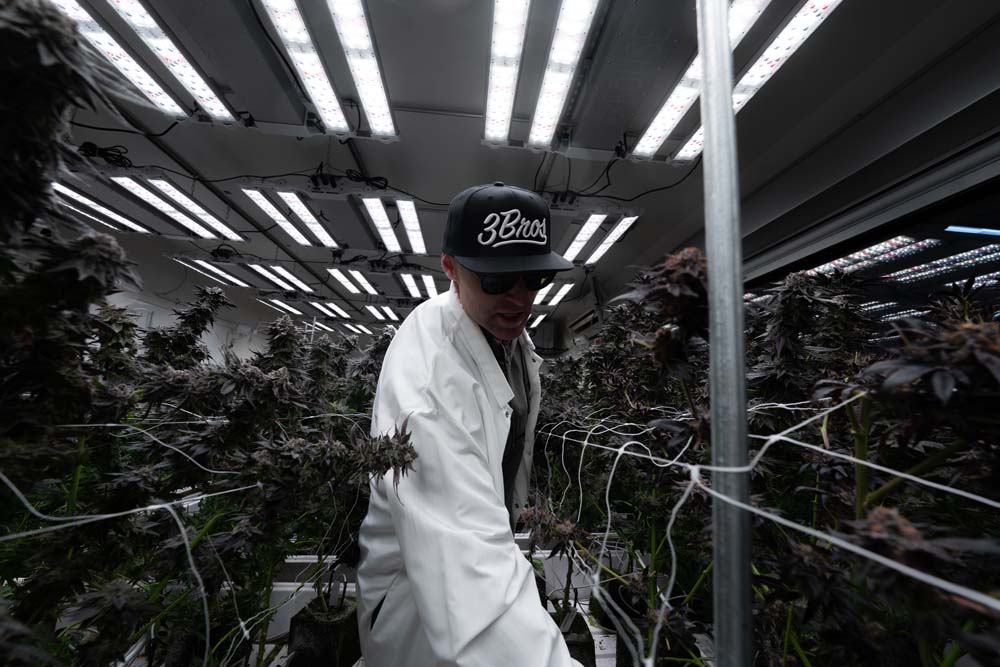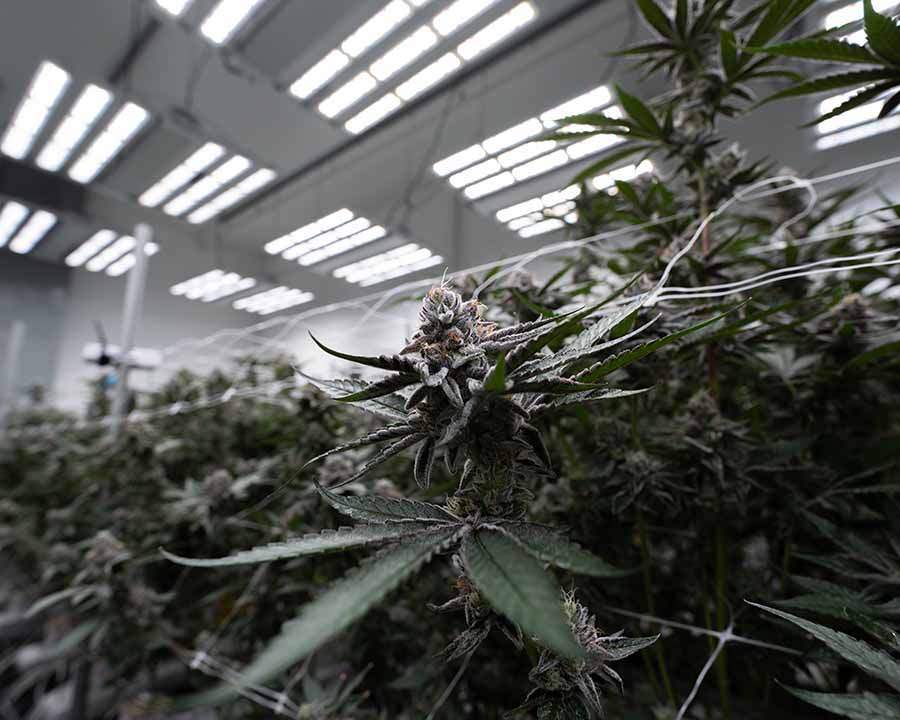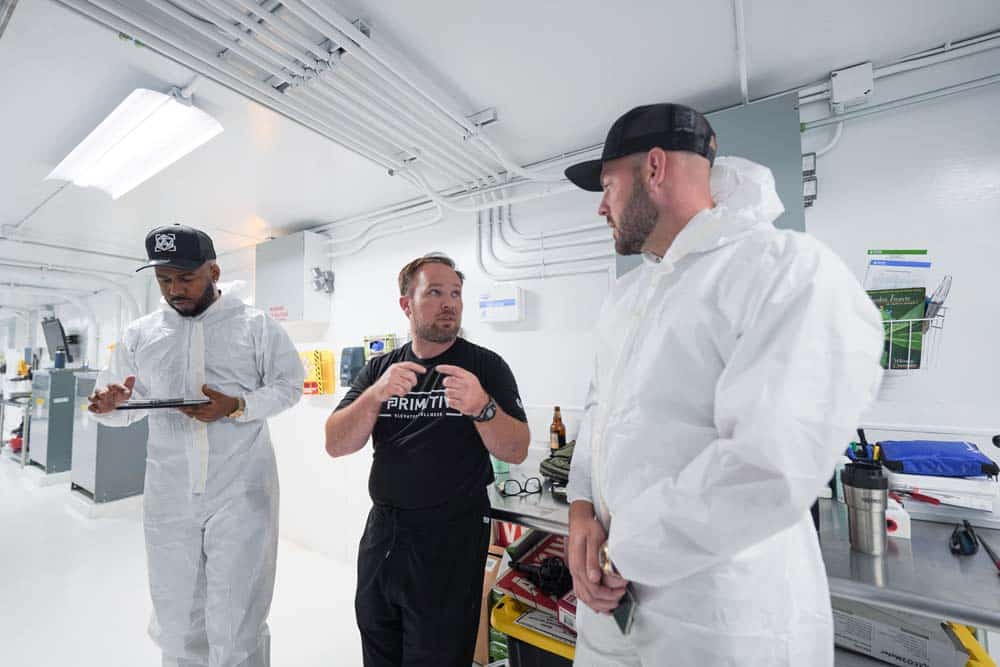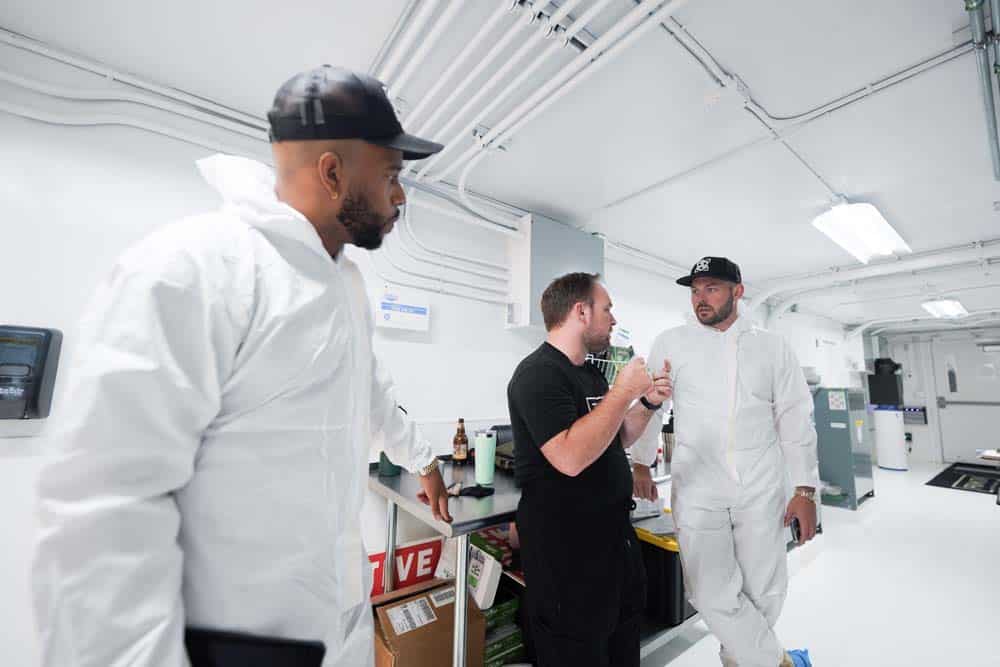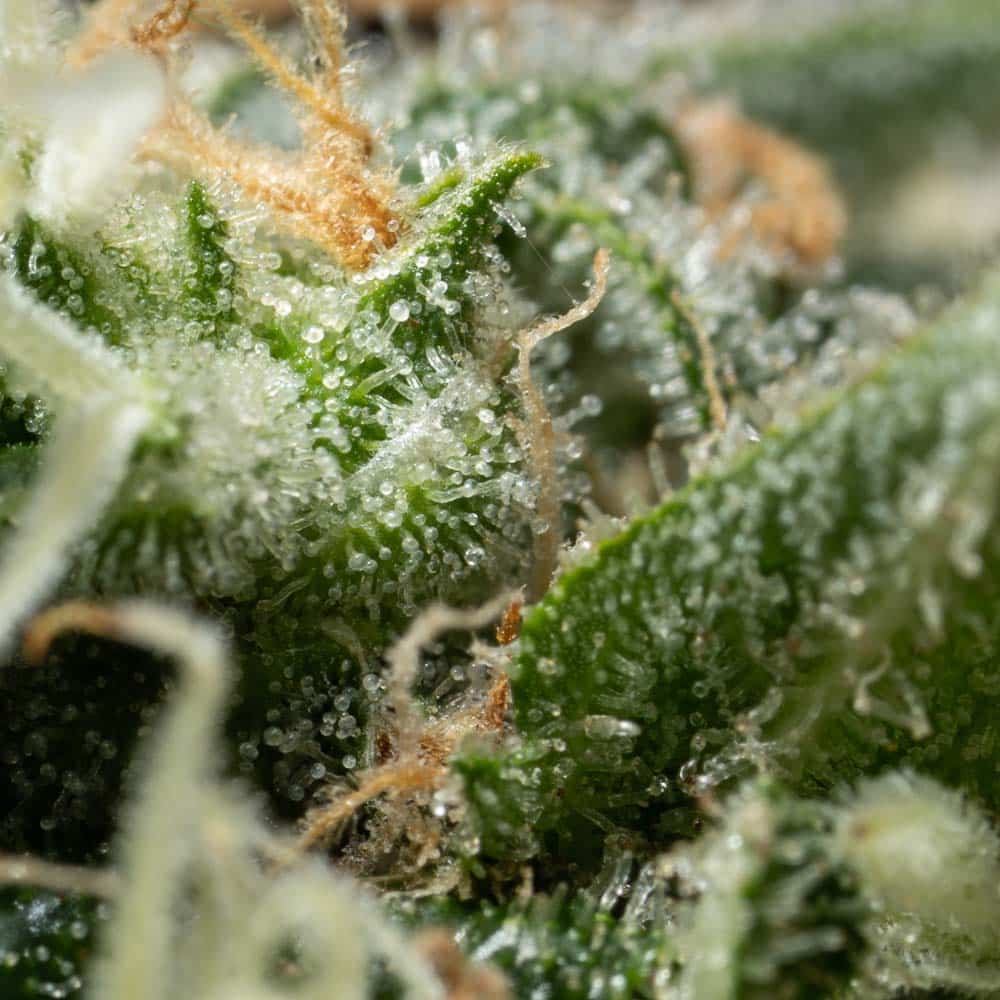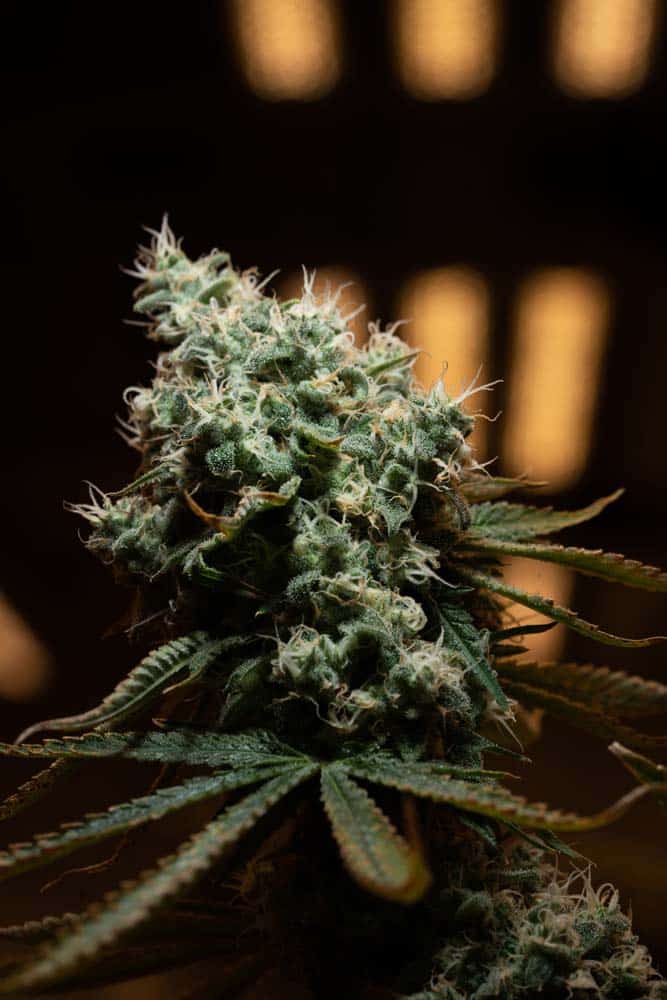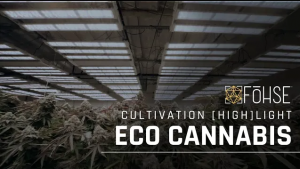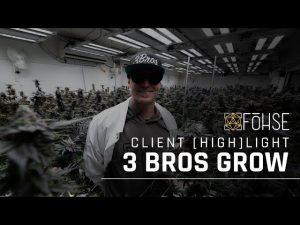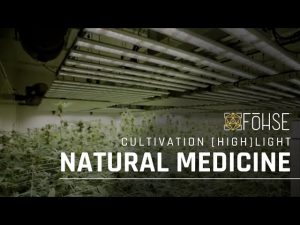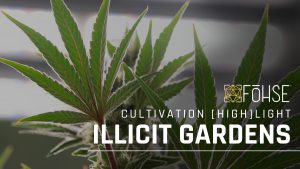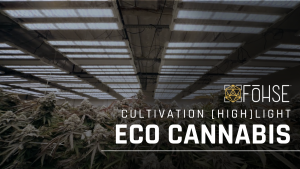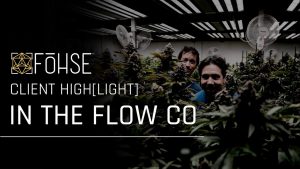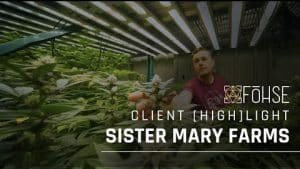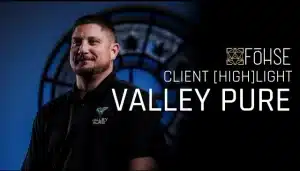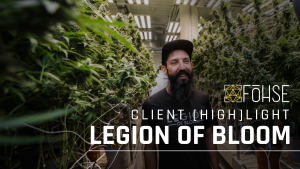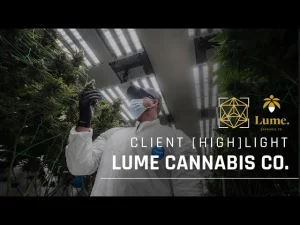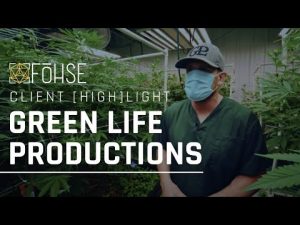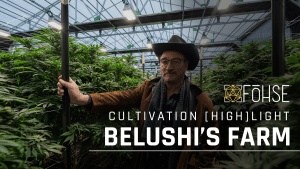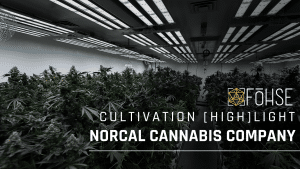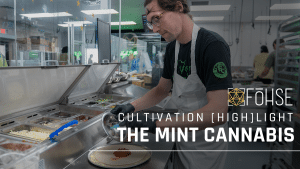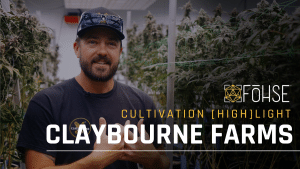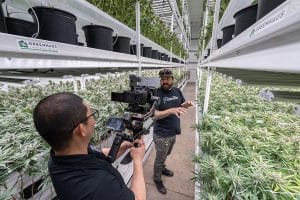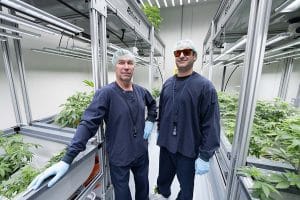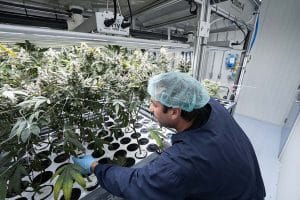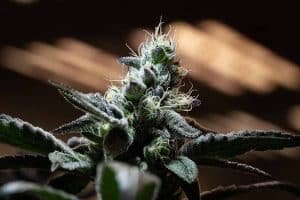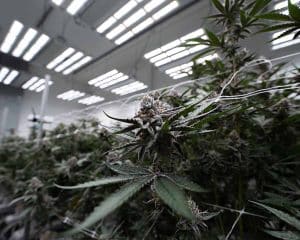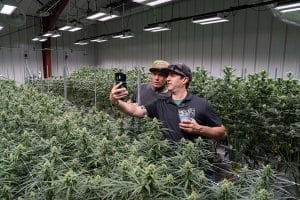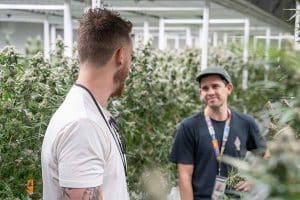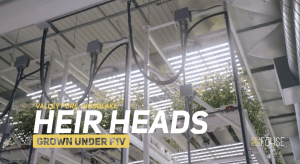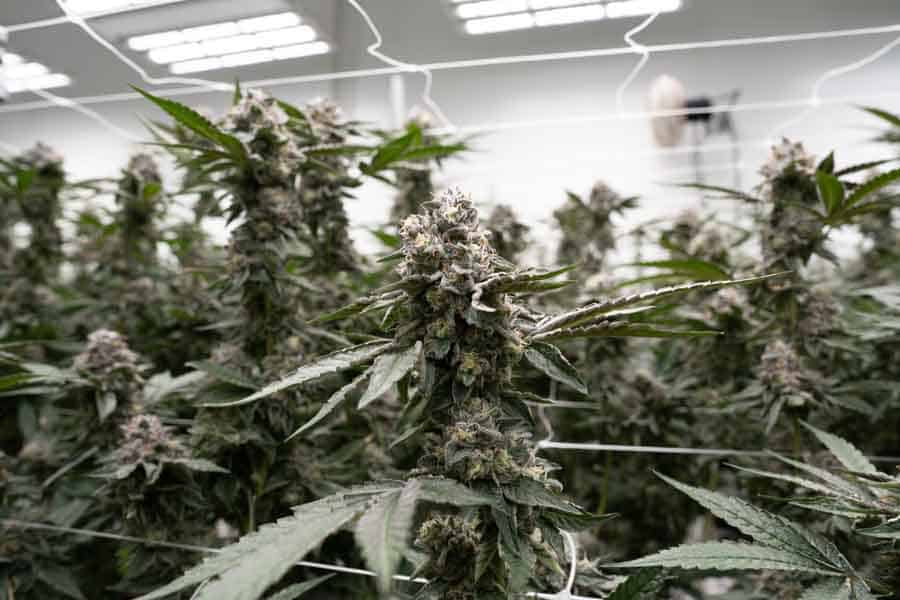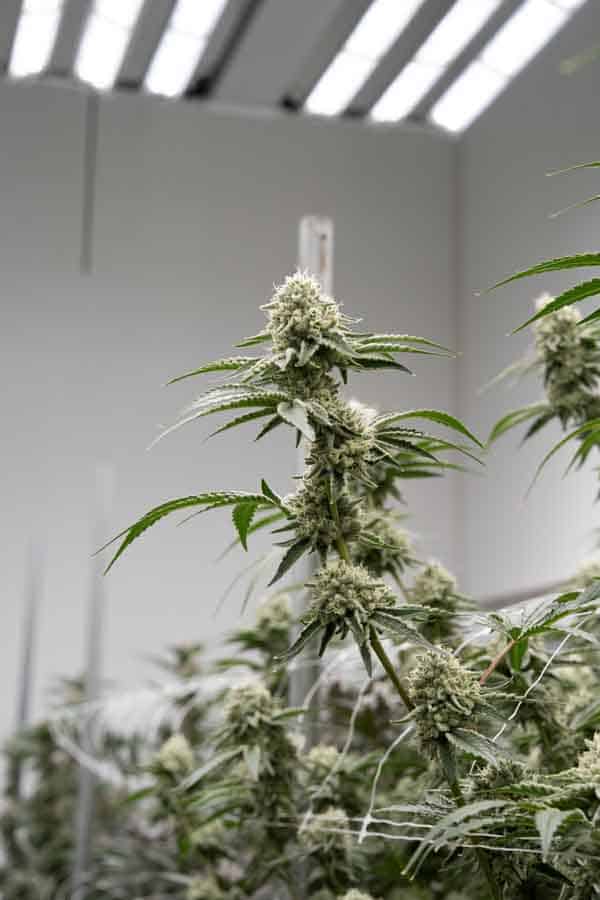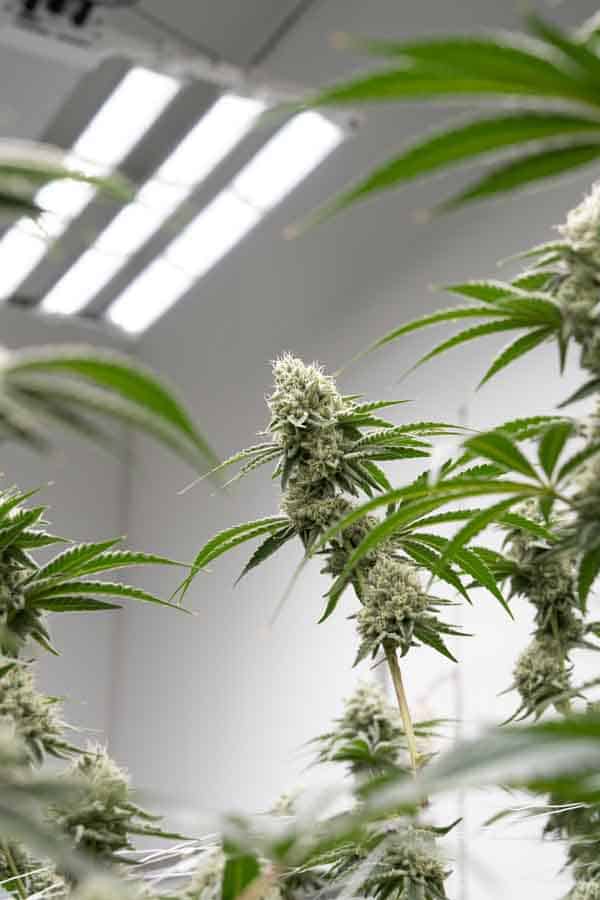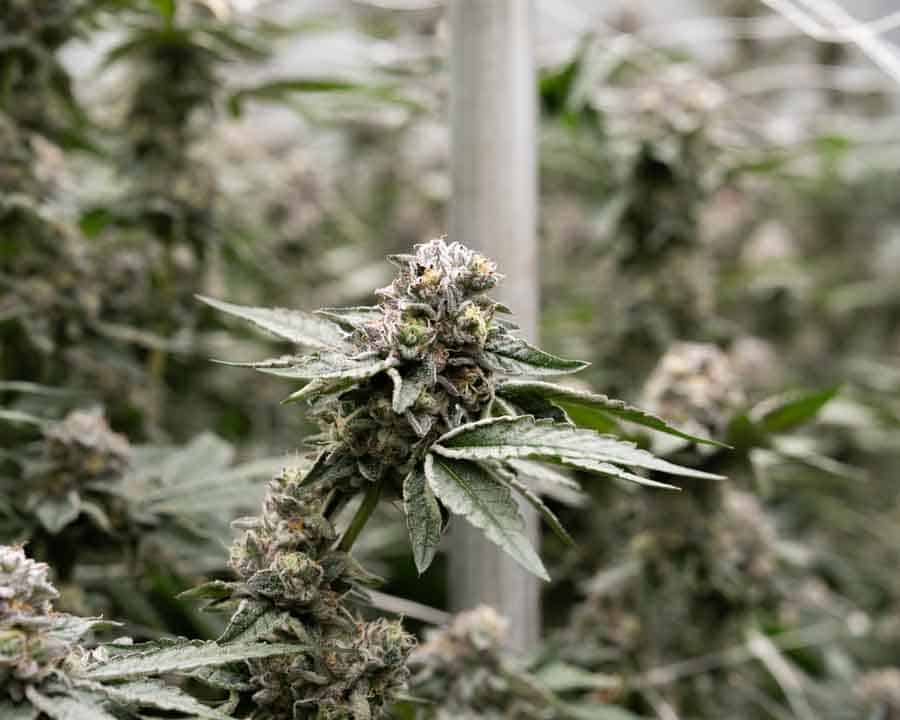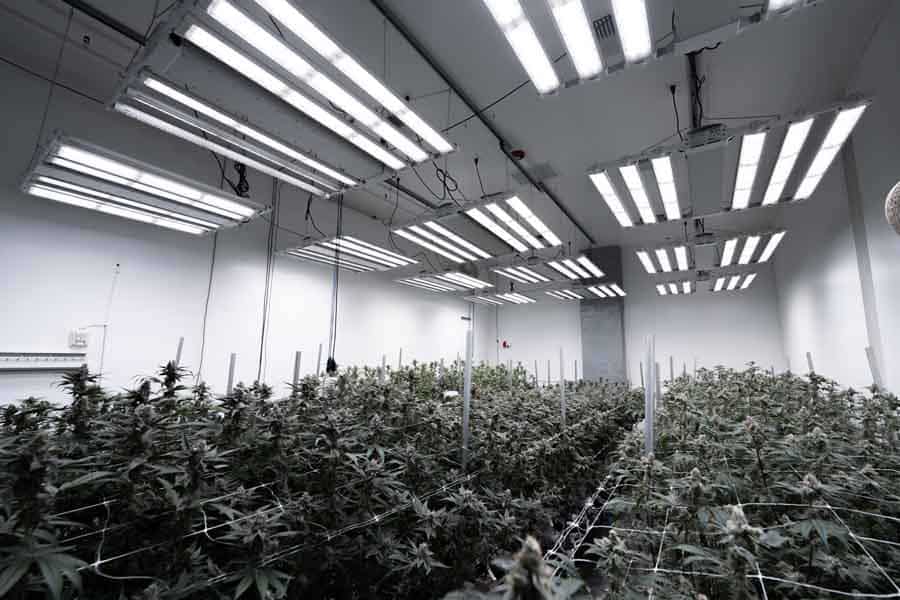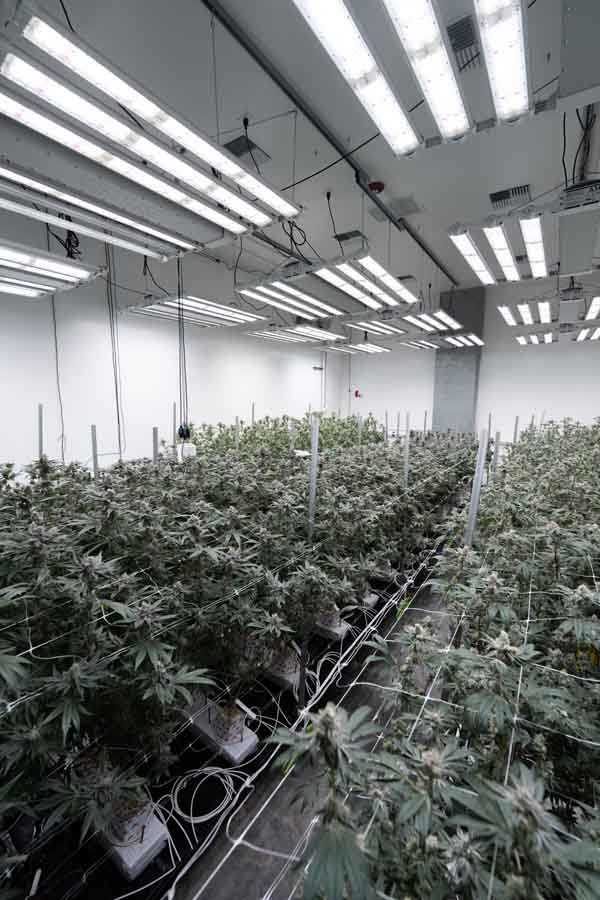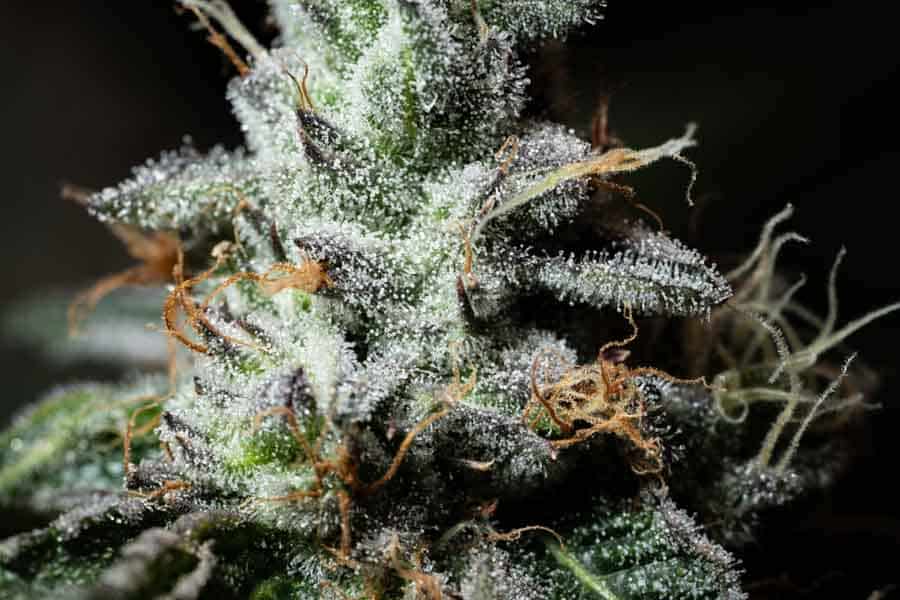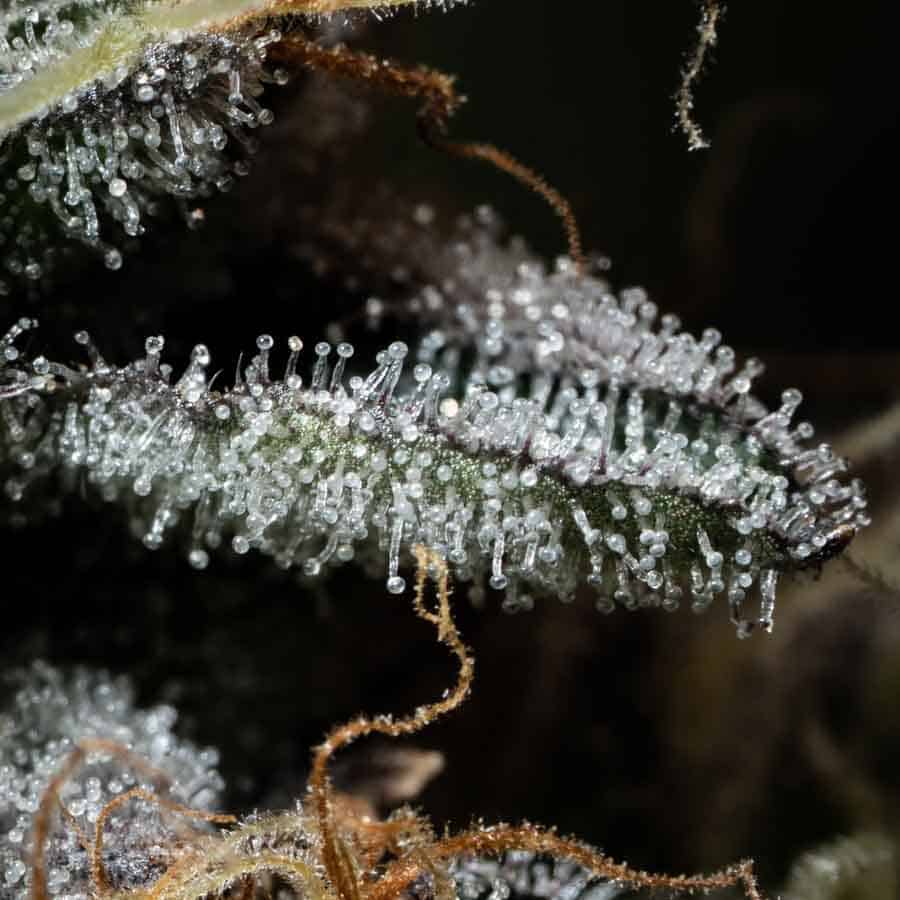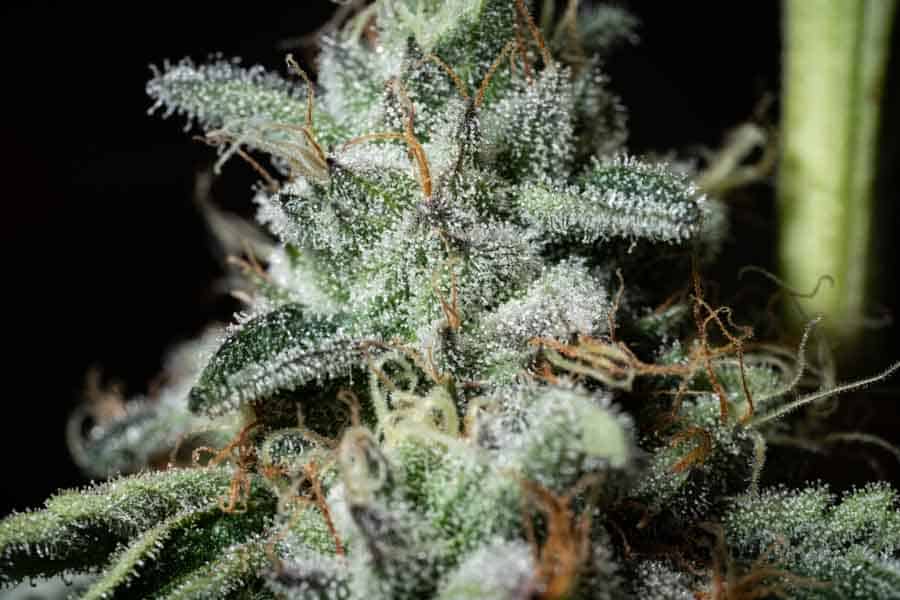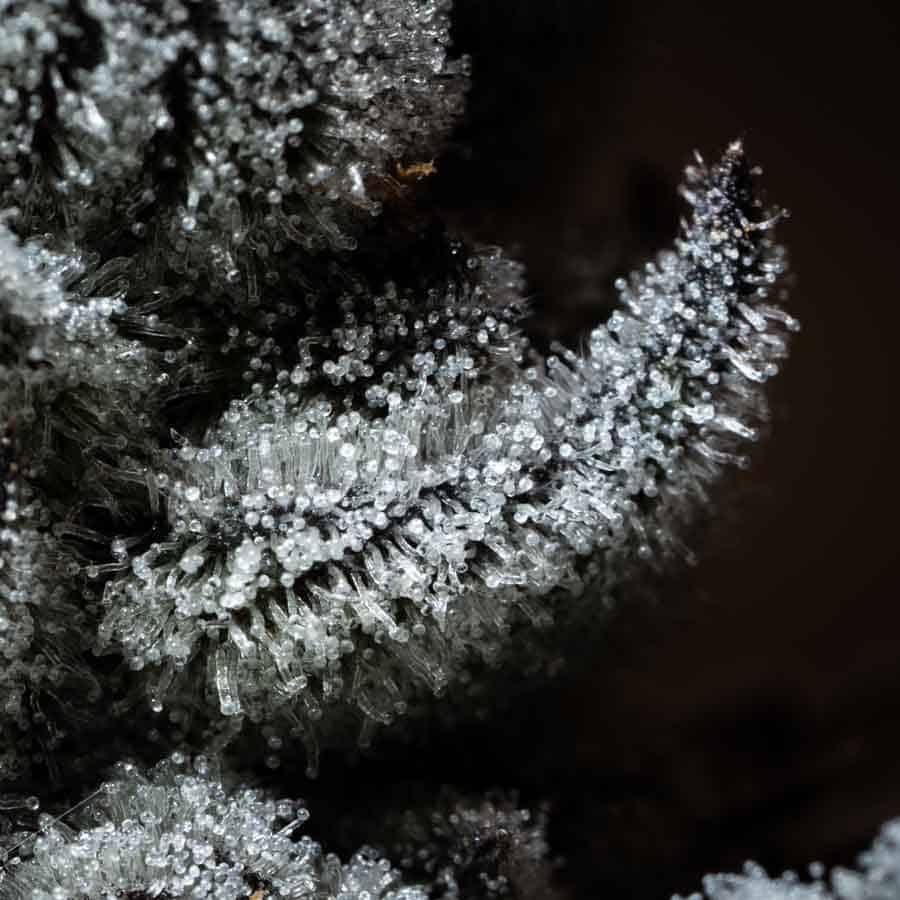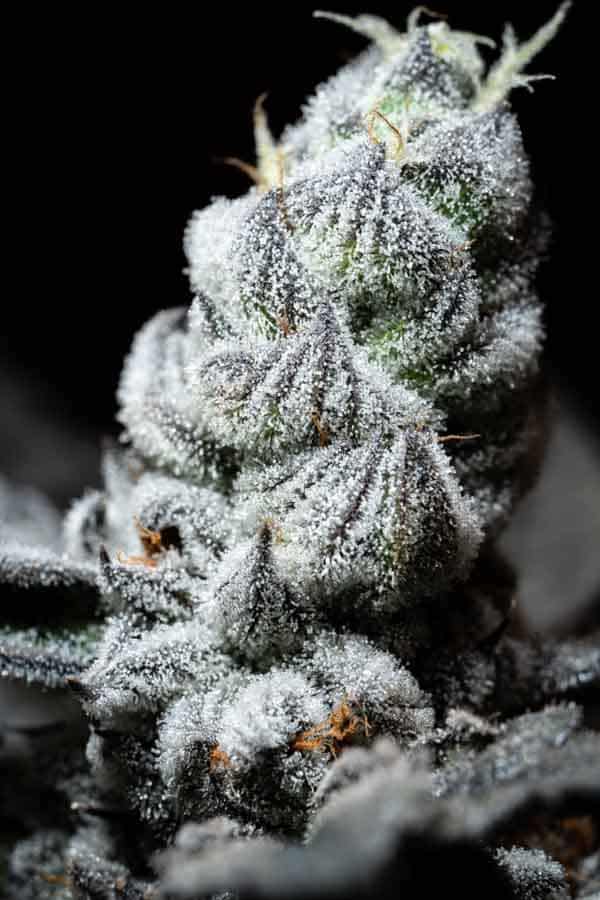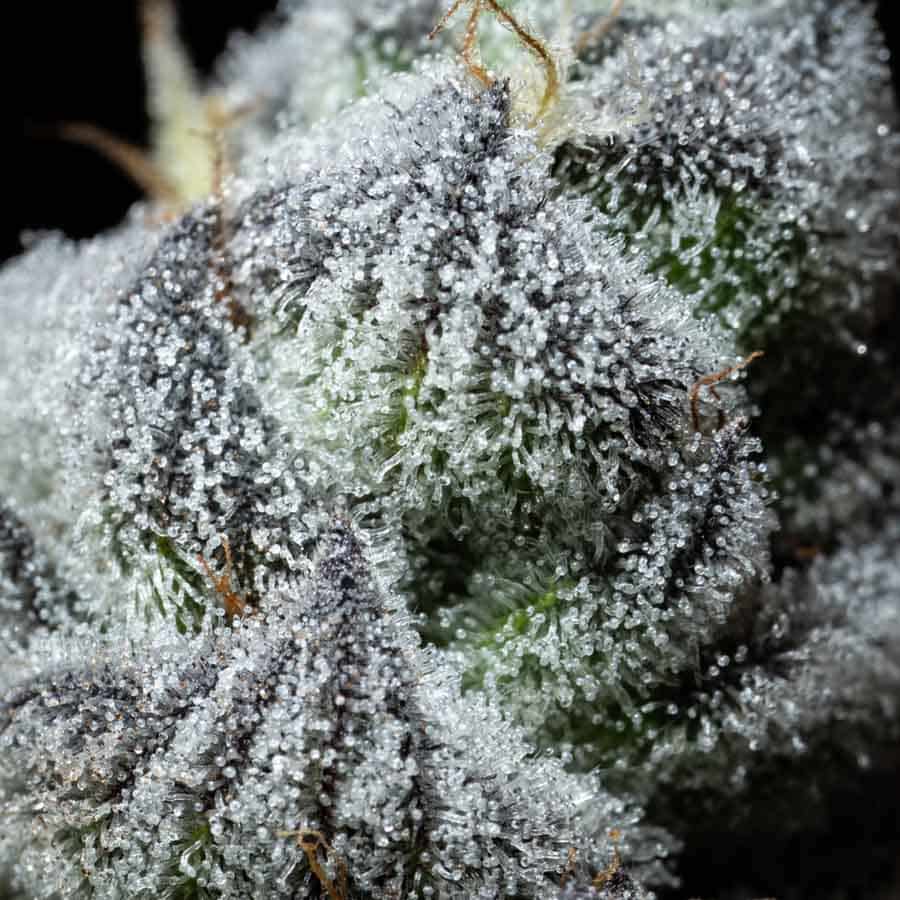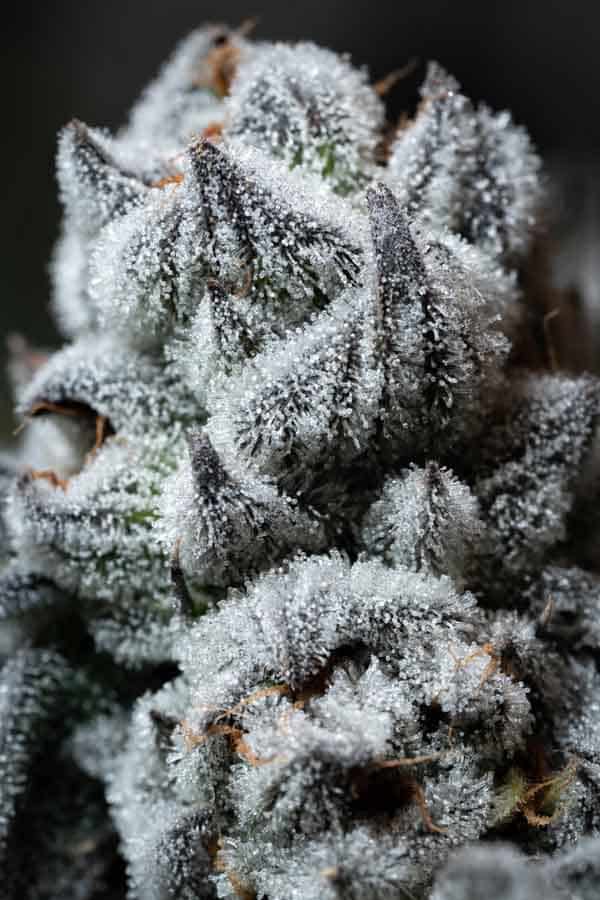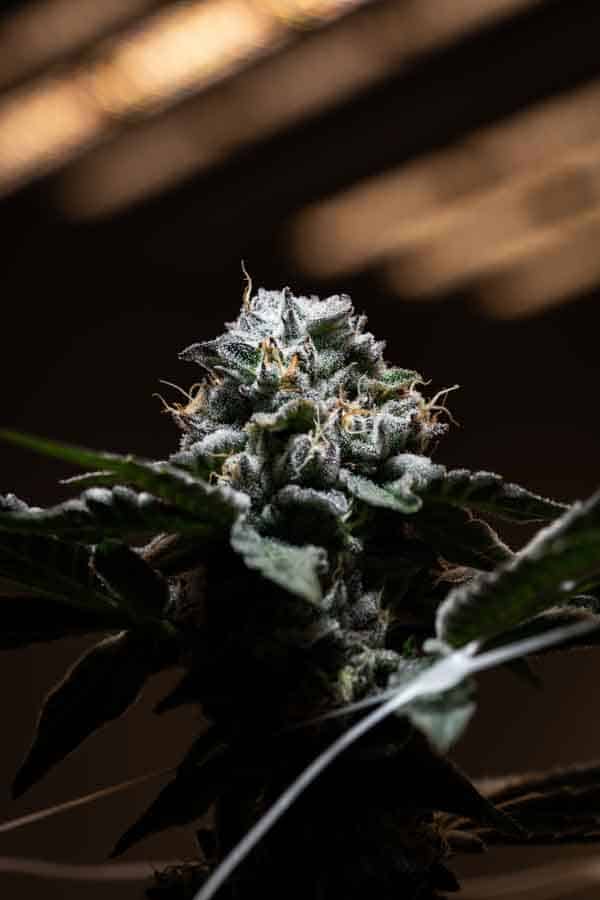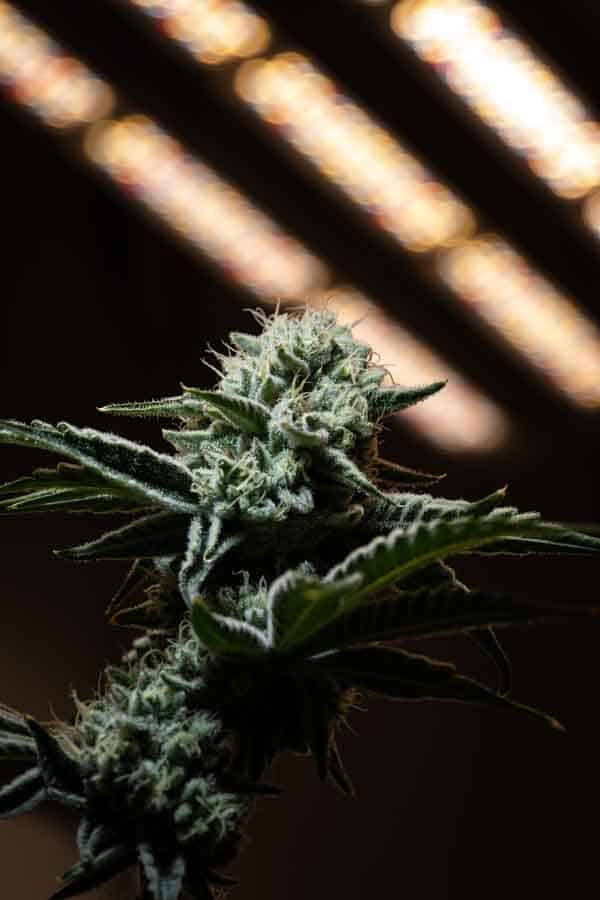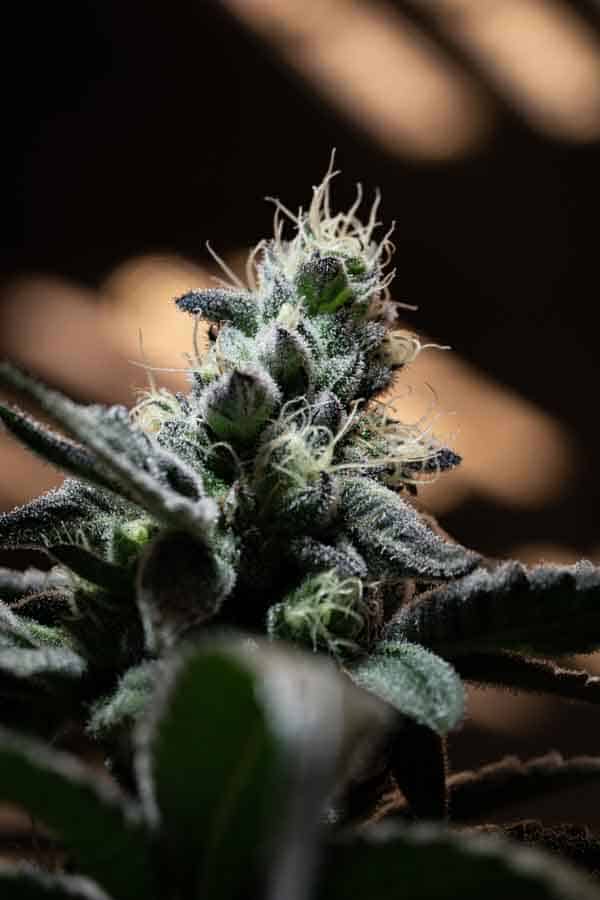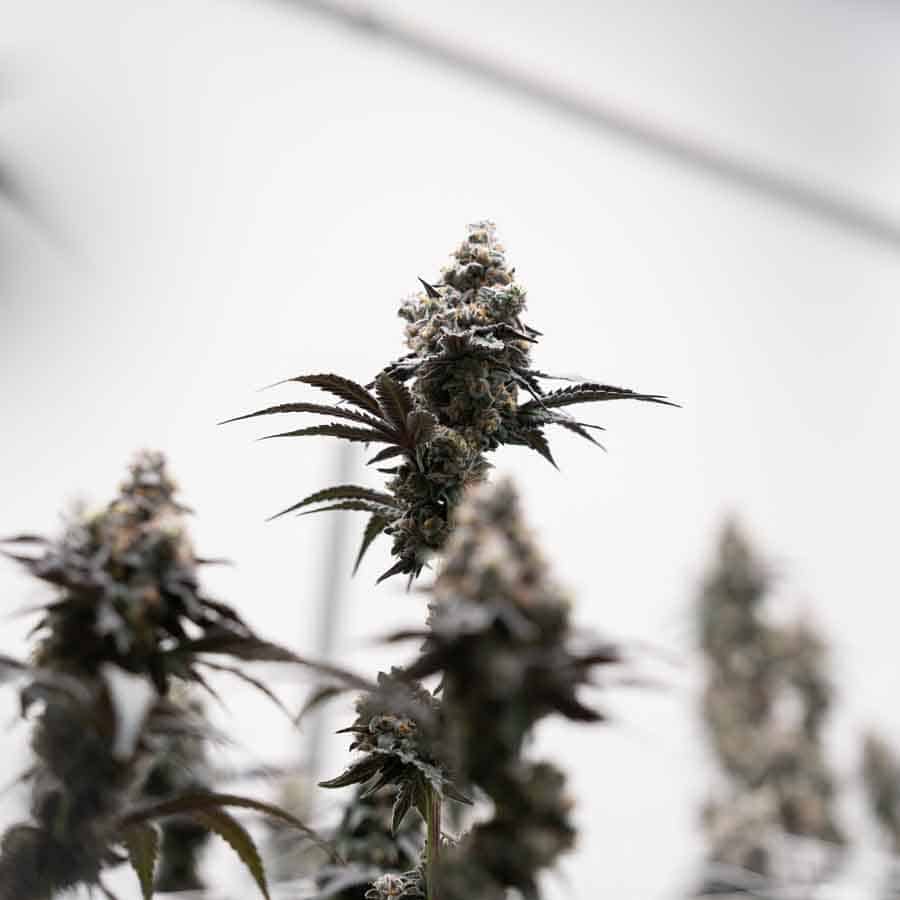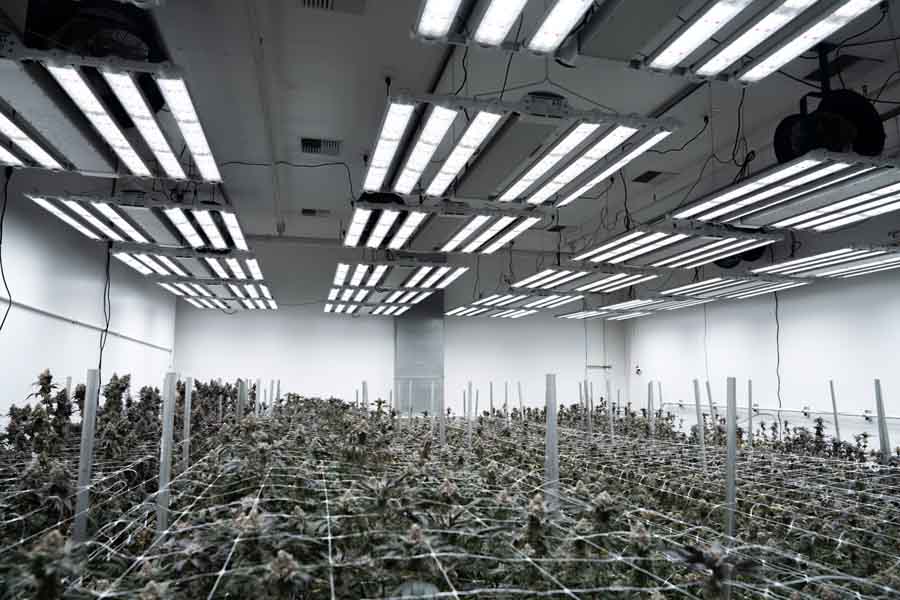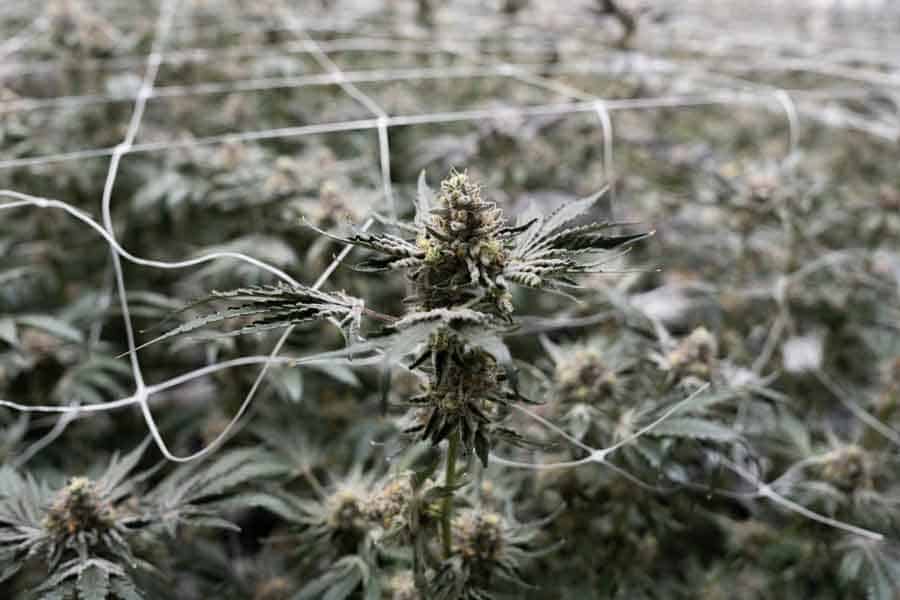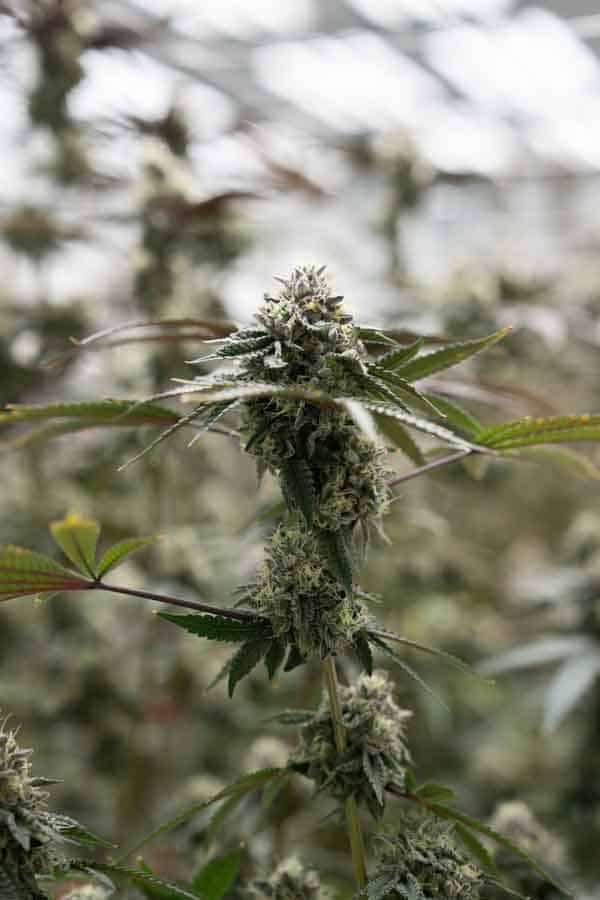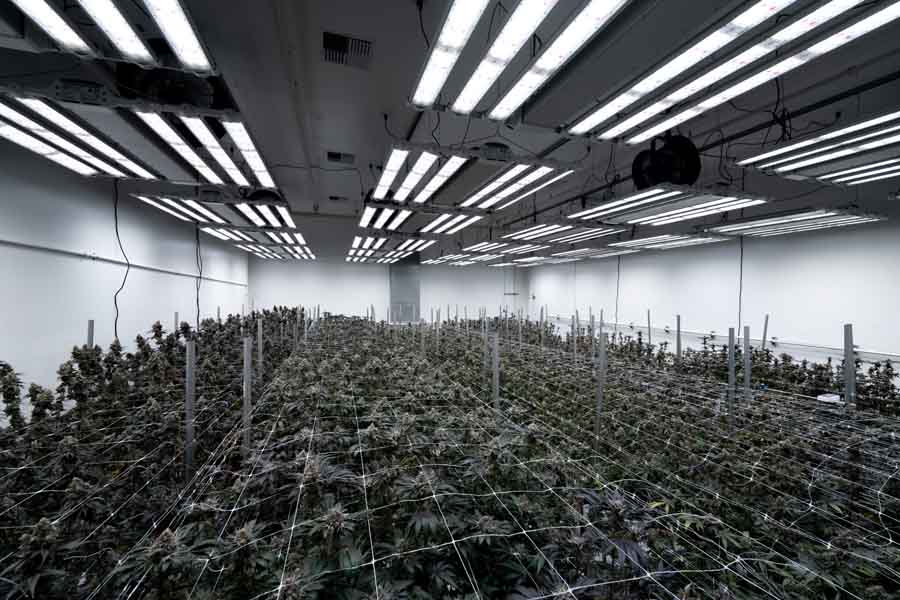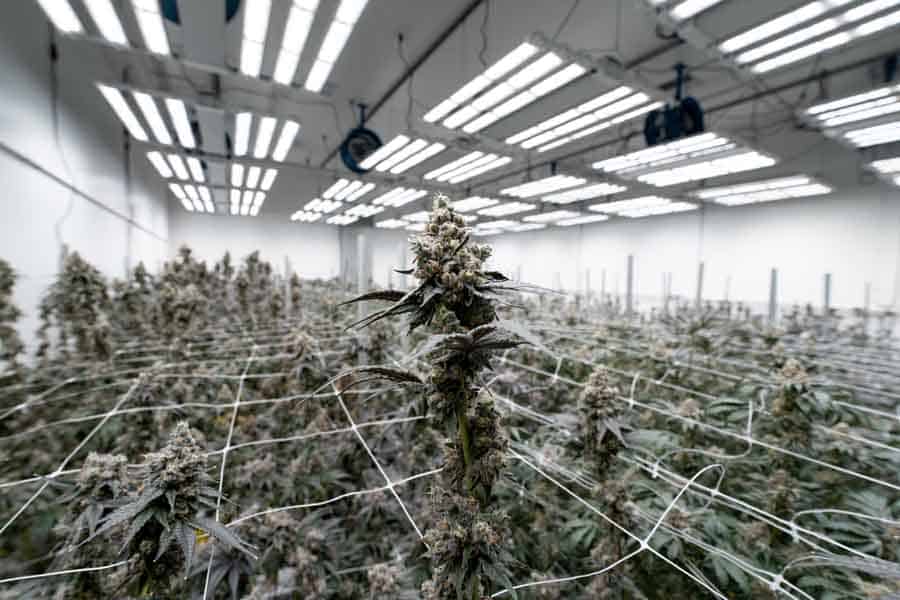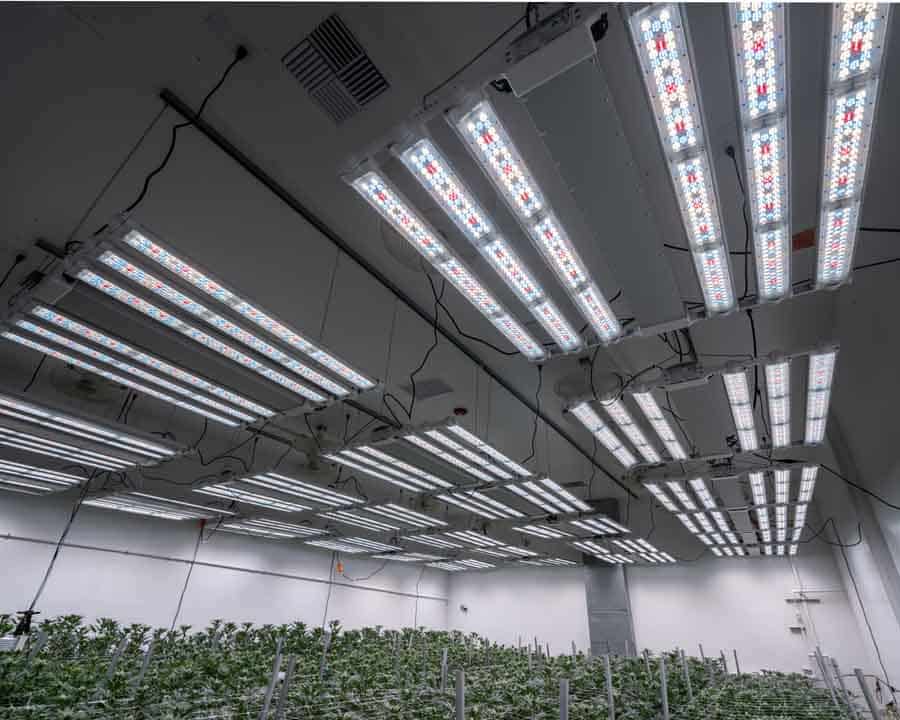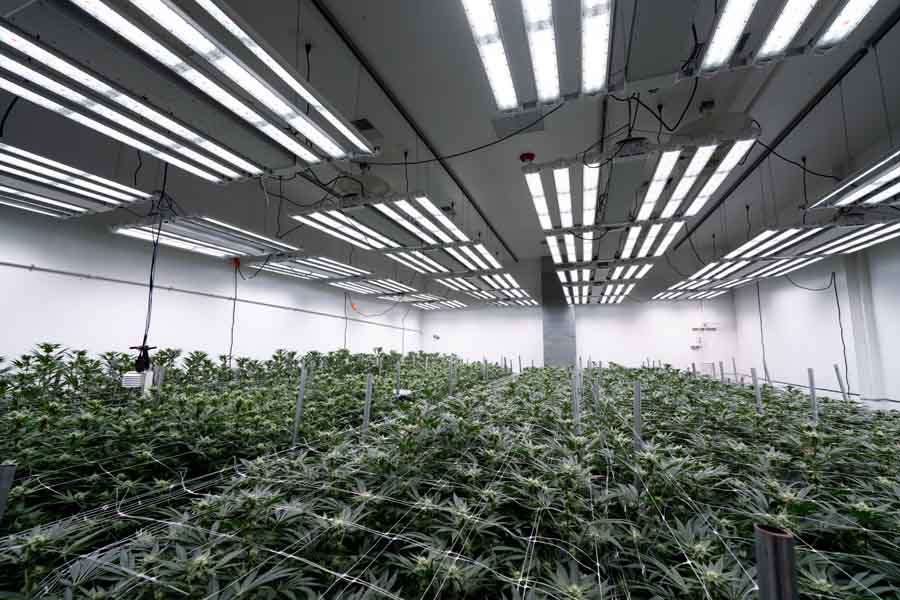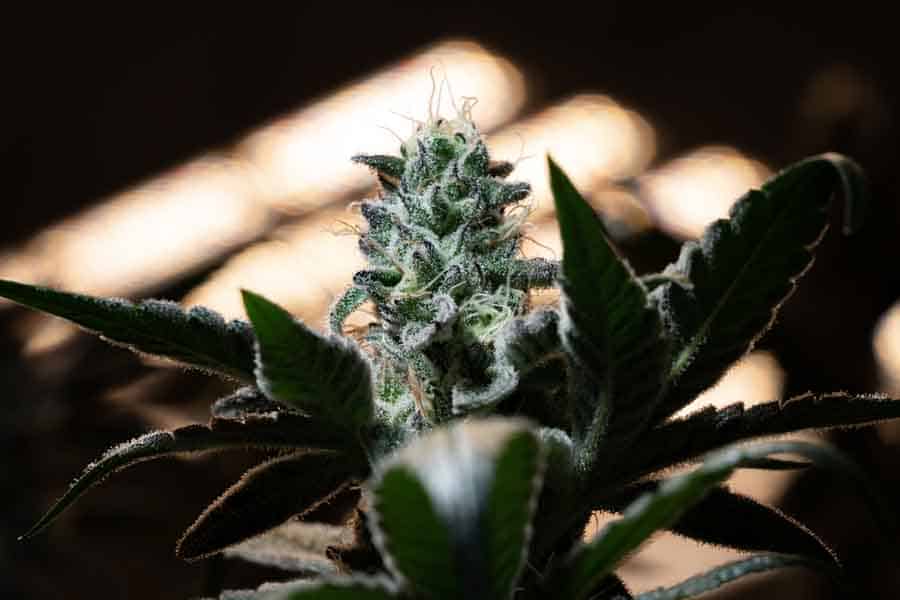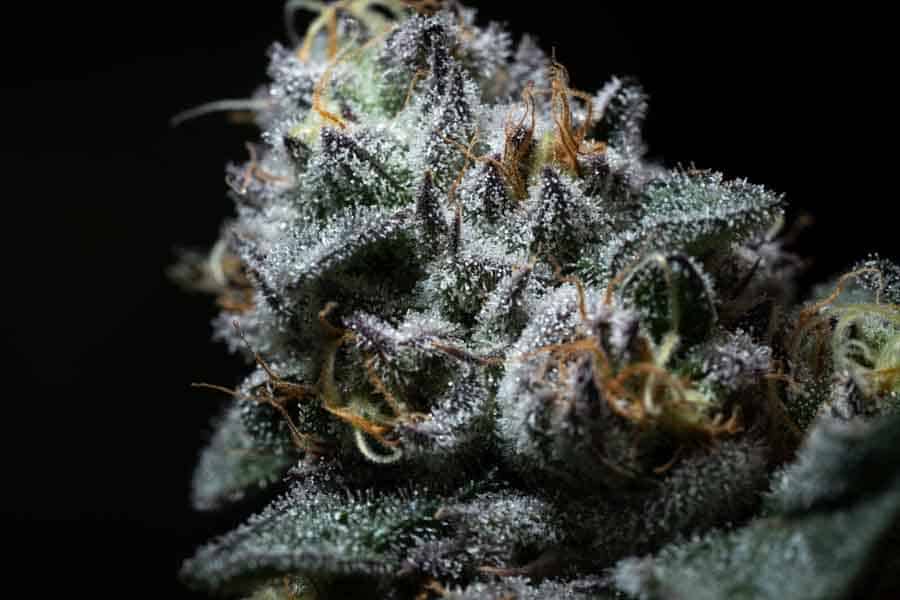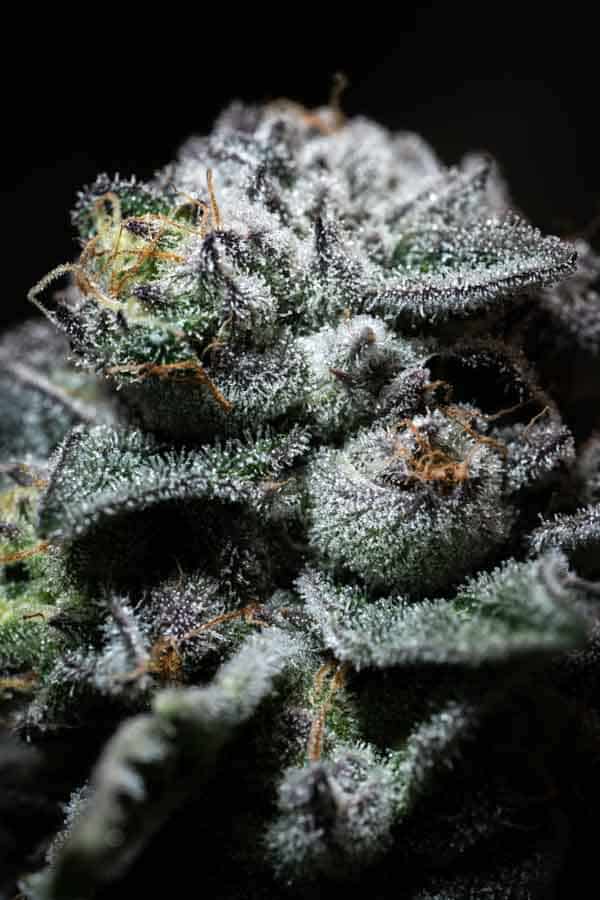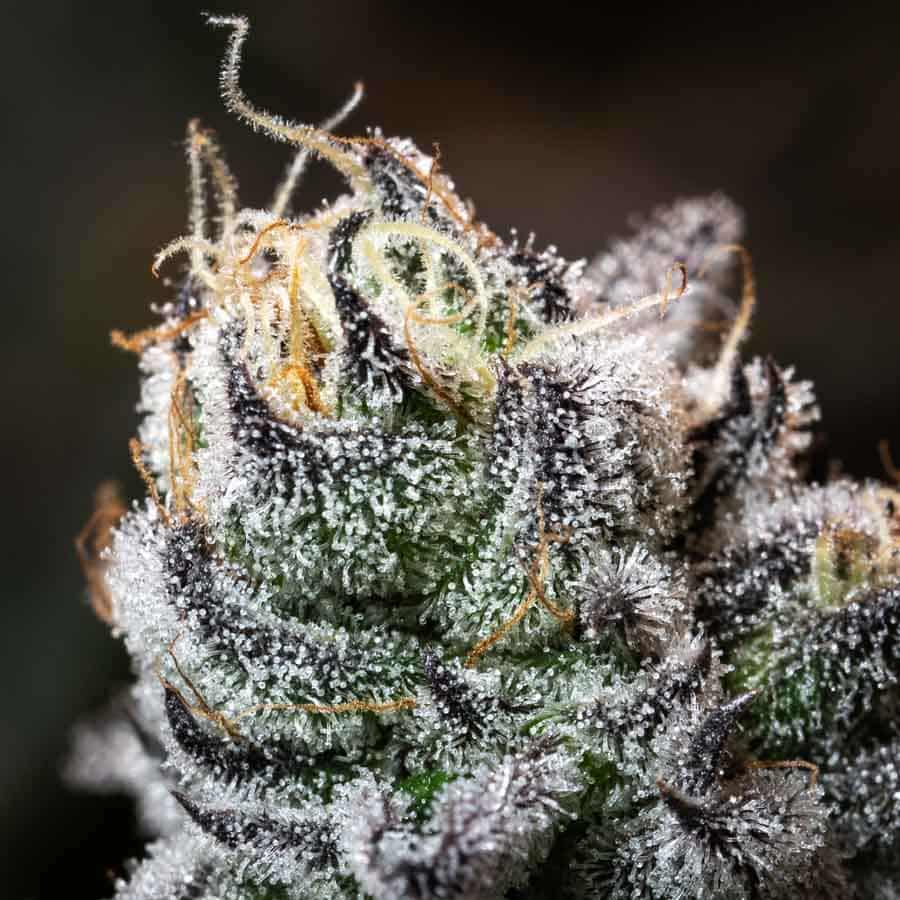To watch Jim Belushi laugh without abandon is to see the best of America on his joyful face, an America that’s unaffected by divisions or dangers at every turn: We see a deeply happy version of our next door neighbor. And it’s a welcome sight to be sure.
Jim Belushi is puffing on a cigar as he cruises through Southwest Oregon, taking his time on a late summer afternoon to talk fame, pain and cannabis from his inconspicuous-looking sedan. His royal blue polo shirt and black-framed glasses speak to a humility that one would think would be far-fetched from a man whose long career in the public eye has made him a household name.
Appearing in dozens of films including “About Last Night…,” “Trading Places” and “Red Heat,” and starring and executive producing the ratings juggernaut TV sitcom, “According To Jim,” Belushi says he’s never been happier than at this very moment in his nearly seven decades on the planet. Not because of anything he’s done in Hollywood, or any big business deals he’s made. This Belushi 2.0 is reveling in his new passionate relationship, a profound and inspiring one, with cannabis.
The plain-spoken celebrity used the plant back in the day, he says, but he’s only recently been able to truly embrace it. The 93-acre Belushi’s Farm in southwest Oregon employs 15 people and will produce 1,600 pounds of flower this year. And it’s all just to spread medicine to people who have waited their entire lives to replace their prescriptions. Belushi has been such a welcome presence in Oregon that the second season of his hit Discovery Channel show, “Growing Belushi,” is set to premiere at the end of the year. The Belushi good vibes just keep rolling.
“I measure success by the letters and the tweets that I get from people who say our cannabis has helped them,” Belushi says when asked what success looks like to him now. “I got my ‘According To Jim’ bucks, so as long as I break even, I’m satisfied.”
Belushi, whose brilliant older brother John tragically died of a drug overdose at the Chateau Marmont in Los Angeles back in 1982, shares stories of people whose lives he’s been able to impact and celebrates the importance of the many cannabis trailblazers who came before him. Some of those trailblazers are still in prison, he points out, his frustration evident. That’s why Belushi supports the non-profit Last Prisoner Project, an organization that helps free people convicted of low-level marijuana crimes during the more than eight decades of cannabis prohibition.
But, for the better part of the hour I spent with the smart, witty Chicago native, he was in the mood to communicate. A few minutes into our convo, Belushi is amazingly comparing the soulful, feminine energy he feels from his pot plants to an oracle that speaks to Apollo and Zeus in Greek mythology. Personally, I can’t get enough — his passion is undeniable, and the urgency he feels to reach more and more people who need help is palpable. Belushi, as if on cue, then reveals how he even plays his harmonica to his beloved plants, since they’re clearly listening and celebrating right along with him. I believe him.
But we had so much more to discuss and discover.
What makes your marijuana different from the dozens and dozens of other competitors you have in Oregon?
I look at it like the film industry. There are a lot of great movies out there. You go to a movie and it’s great, and you and your girl want to go to another movie because you had a good experience.
Good cannabis makes people want to have more good experiences, so they should try everybody’s product. Ours is right up there in the Oregon market as being very, very good weed. We have great THC values, but more importantly we have tremendous terpene values.
I have an excellent grower and we’re growing with natural nutrients. I’m flushing their irrigation out two weeks before so it’s a perfect white ash. I’m keeping the soil at 64 degrees so the nutrients will be absorbed into the roots. We’ve got light-dep greenhouses, so we protect the growing environment from the aphids and the mold and russet mites. And we also have that beautiful southern Oregon soil.
How does your cannabis stand out, then, like a good film would?
That’s a very good question and it’s one of those questions where I cannot give you certain things [Laughs]. We do have some secret moves that other growers don’t have and that we covet.
We just went over to Advanced Nutrients, which has been really good. And we just built two new greenhouses by Gro-Tec with really great high ceilings. We changed to Fohse LED lights, which creates about 30 percent more penetration into the plants when we need to augment the light if it’s cloudy, in order to keep the ‘lumes up to close to 1100 (watts). It ensures there’s consistency in the plant. We supplement with (Medford, Oregon-based) Rogue Soil, which is packed with great natural nutrients and gives our plants a great boost and great color.
Have you ever been happier than you are at this very moment?
I’ve done a lot of personal work, and it really started when I bought this farm, along the Rogue River, the middle of the spiritual vortex between Mount McGlothlin and Table Rock. There was a Native American vortex of spirituality here and now we’ve brought in this spiritual plant.
Here’s the thing, I do believe this plant has changed me. Being alongside of it, caring for it and loving it. I play my harmonica for these girls. The relationship with these plants has changed me. They’ve enlightened me and made me a better person. So, I have to say, yes, I’m probably in the best place that I’ve ever been, and I attribute it all to, like, starting a relationship with this old beautiful feminine energy. The Oracle is a feminine creature that tells Apollo and Zeus what to do. Well, the Oracle on my farm are these plants, and let’s just say we treat them like that.

What’s the extent of your involvement on your farm?
I collaborate with my grower, Anthony Anaya. I’ve gone through three growers, and I finally found a winner with Anthony. He’s like Elvis Presley! [Laughs] He’s been in the industry for 15 years in Oregon and he knows his stuff. I collaborate with him; I collaborate with Jeremy and my cousin Chris. It’s like, you can’t do a movie or a show by yourself. You need directors, producers, writers, prop people and cameramen.
Can you describe some of the most surprising challenges you’ve faced as a cannabis grower that perhaps you weren’t expecting?
I wasn’t expecting the aphids, mites, gophers, squirrels, deer and mold. They never tell you that stuff when you put your money out and invest in this industry. Wow! We lost 300 pounds last year to mold alone. That’s why I’ve made recent shifts in our products. It helps us control the environment enough to eradicate pests and mold while using natural remedies.
How have the wildfires in the area and record heat over the past couple summers affected your ability to grow cannabis?
They’ve affected the employees, but not the plants. It gets very smoky, and we make everyone wear masks for protection. The heat during that time is at around 115°F — we keep the plants hydrated, so they can survive that just fine. During the last fire, the employees started working at six in the morning and left early before the main heat of the day.
Is it really true that Dan Aykroyd’s comment about your late brother John potentially being alive today had he used cannabis instead of other substances played a role in inspiring you to get involved in pot?
Absolutely! Danny was a pothead, but he didn’t mess with other drugs. I’m not saying John didn’t use cannabis, but I still think John’s stuff possibly came from other things like CTE from playing football. Look, we have 33,000 veterans committing suicide a year. PTSD — what it does to these men and these women — the scarring and the traumas: I really think cannabis can help relieve some of their trauma and help them make better decisions.
I once met a veteran in a dispensary parking lot. I looked at him and I said, “are you alright?” He said “No, I was a medic in Iraq. I saw things happen to the human body that nobody should ever see.” He said doctors gave him OxyContin and he just couldn’t do it. But cannabis got him off OxyContin. And he tells me, “Your Black Diamond OG strain allows me to talk to my wife and talk to my children and sleep.” He hugged me and I said, “Hey man, I didn’t make this.” He says “No, but you’re the steward.”
That moment became a paradigm shift in my relationship with our industry. So, yeah, I’m chasing the medicine. The magic of the medicine.

The arc of your life has been fascinating — from juvenile probation and being in trouble as a kid to having a big Hollywood career and now just narrowly escaping the area’s massive wildfires. You’ve been adjacent to a lot of stuff, but somehow have been able to navigate everything. Do you feel there’s someone or something watching over you?
I’m on mission from God. [Long pause] I just listen. What do you want me to say? [Pause] I just keep looking for the light, for something bigger than myself. Within our industry, it’s medicine.
Another thing that’s really big for me is the Last Prisoners Project. It’s our duty in this industry to get these men and women out of jail. They were the pioneers; they were the ones that laid on the barbed wire for us to get legalization and make a living. We got to get them out of jail, and we got to hire them within our industry.
What do you have in mind for expanding your cannabis footprint?
There’s a lot of talk going on. And right now, I’m with RedBird in Oklahoma. Then with Columbia Care, and the Green Solution in Colorado. I got a Blues Brothers ice cream brand being launched and also Blues Brothers Bhang Chocolates, which are really good.
I currently have four brands: The Blues Brothers brand, of which we have three or four different types of joints. It has a flip-top box so we can put it in a shirt sleeve. We call them Baby Blues, a little six-pack. We have the single gram joint, which we call Rocket 88. And then I have Chasing Magic, which is my secret stash and really the higher premium brand of what we grow.
And now we just released the Captain Jack joint in Oregon. Oh, and we’ve also just released Good Ugly Weed, which is really good weed.
Good Ugly Weed seems to be very on-brand for you: a little scruffy, but also lovable and powerful.
It may be ugly, but it’s good, man! [Laughs] We just put out some Good Ugly Weed at 24 percent THC. It’s a value brand and the dispensaries are just dying for it. The profit margin on it isn’t huge, but I got my comedy bucks, you know. So as long as I break even on it.
How many different strains do you grow at a time and in how many dispensaries is your product currently sold?
We have in our library around 20 different genetics. With our new Gro-Tech greenhouses, we can grow up to eight genetics at a time. With four cycles and four greenhouses, we have a lot of flexibility.
Any plans to expand with CBD?
I just created a CBD tincture for my dog. It’s a tincture of 500 milligrams, full-spectrum, called K-9ine. And it’s only offered on my website, I’m just putting it out there for other dog lovers. And I know it works: My dog couldn’t walk for three days, but then he chased me up the stairs.
Of all the cannabis legal states. What drew you to do business in Oregon, Colorado, Oklahoma and Illinois? Was it just a matter of less barriers to entry or was there anything more?
Well, I’ve also talked to companies in California, Nevada, and Pennsylvania. In Oregon and the other states where you can be a cultivator and distribute, I’m just having better luck.

Are you trying to become the Bobby Flay of cannabis, or are you more of the Oprah? Through your show, you’re making cannabis easy for the person who has no connection to any of this.
I think I have what it takes to create competence in cannabis. There are so many people that are curious about it, and I’m trying to use “Growing Belushi” to try and bridge that curiosity and show the viewers how it’s grown, how it’s tested as well as some of the medical things that revolve around it. Also, show them, this is how you smoke a vape pen; this is how you take an edible.
Have you had to deal with any chest-pounding trolls on Twitter for being a Belushi and also championing cannabis?
No, I haven’t experienced that. But I’ll tell you why. Everybody knows somebody who’s suffering. Everybody wants to stop their relatives or their friends from suffering, and they’re curious about cannabis. I know a lot of people are targeting the youth with cannabis, but there’s a lot of interest among Baby Boomers, too.
I literally take people into a dispensary and say “Look, it’s not a mom-and-pop place; it’s not where drug dealers are hanging out. It looks like an Apple Store.” I encourage people to just try going into a dispensary and not to be frightened.
What does success look like for you now? Before, your definitions of success had to do with opening box office figures or the week-to-week Nielsen ratings of a TV show. Is this moment different because you’re in it for the long game and you’re in it to help people?
I measure success by the letters and the tweets that I get from people who say our cannabis has helped them. Another measure that I’ve already reached is breaking even on the business side of things! [Laughs] I’m investing in myself. Instead of the stock market, I’m investing in the farm.
Is “Growing Belushi” going international?
Yes, it’s an international show now. We just made a deal with a foreign distribution company that’s taking it all over the world.
Ha! So, you are becoming cannabis’ answer to Bobby Flay or Guy Fieri![Laughs] Guy Fieri is actually in the show! He comes to the farm, and I make my ice cream for him, my chocolate. We cook some Albanian dishes. He cooks in my backyard and we make ribs in a smoker. The episode is awesome.
This story was originally published in the print edition of Cannabis Now.



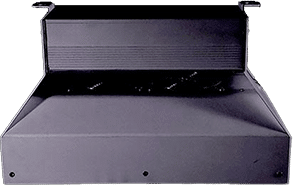











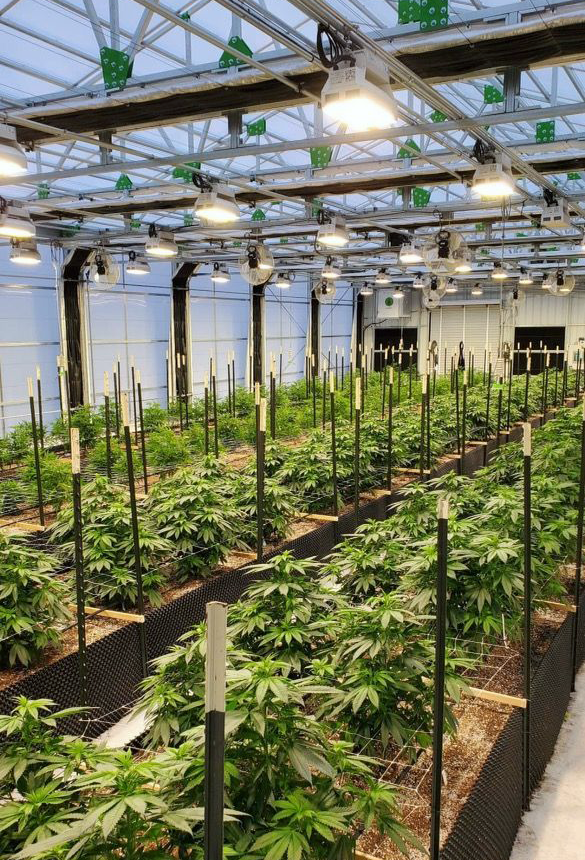
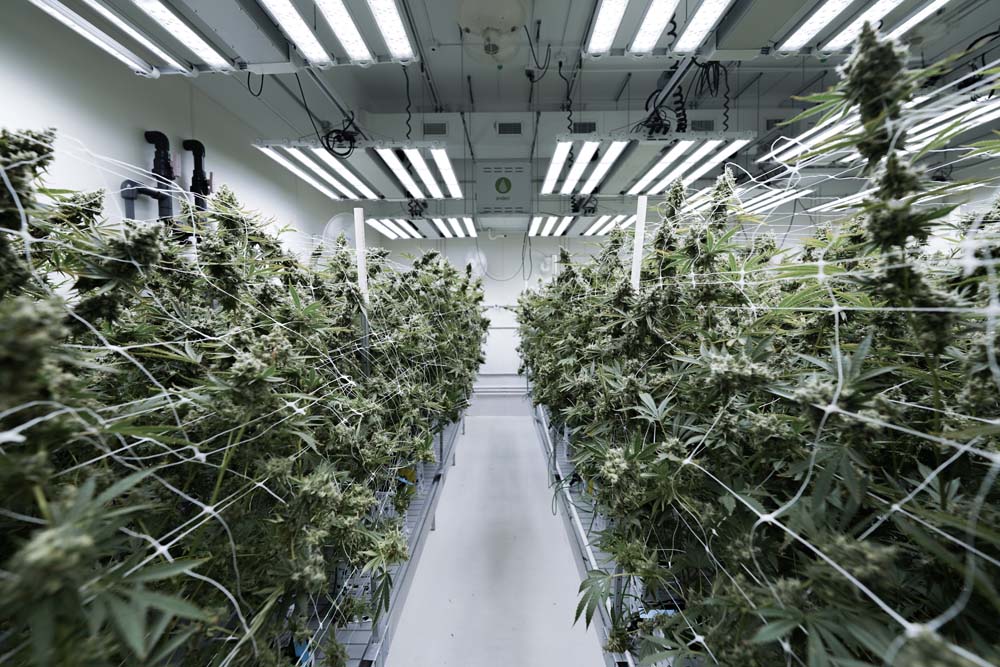
![Client [HIGH]💡 | MT Kush – Flower Room | 121](https://resources.fohse.com/wp-content/uploads/2023/10/Fohse-MT-Kush6.jpg)

